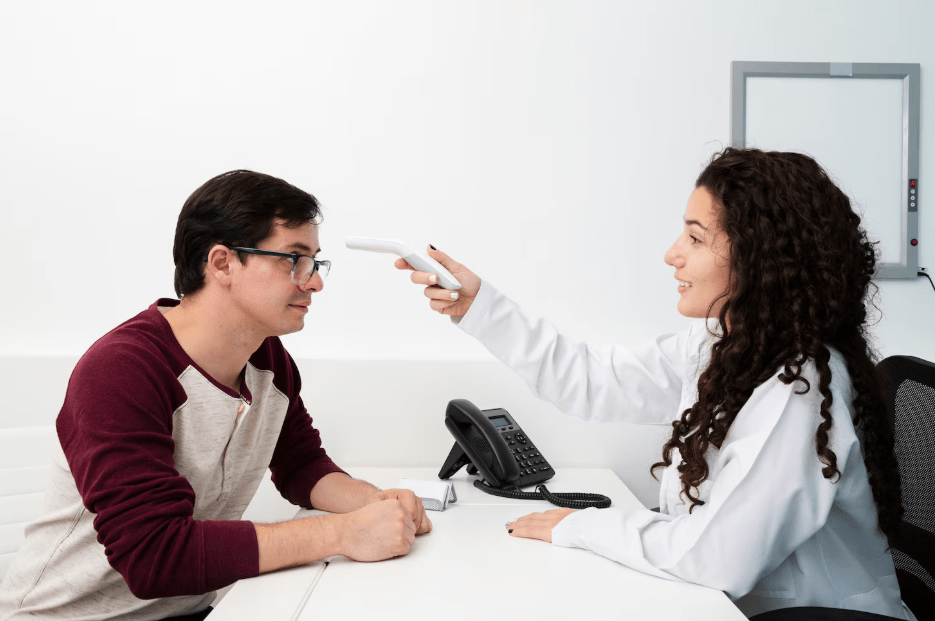
Stepping into your first hearing appointment can feel like a mix of relief and uncertainty. You’ve finally decided to get your hearing checked — but you might also be wondering what exactly will happen, how long it’ll take, and whether you’ll leave with answers. The good news? Hearing specialists are there to guide you through every step with care and precision. From testing and diagnosis to discussing solutions, the experience is more informative than intimidating. If you’re beginning your journey toward hearing loss treatment, here’s what you can expect and how to make the most of it.
Understanding the Purpose of Your Visit
The first appointment isn’t just about diagnosing a problem — it’s about understanding your hearing health in full. You’ll start by sharing your hearing history, lifestyle, and any challenges you’ve been facing. The audiologist will ask detailed questions: When did you first notice changes? Are there specific situations where you struggle to hear, like in noisy restaurants or during phone calls?
This conversation helps them connect the dots between your daily experiences and potential causes. Hearing loss can result from many factors — age, noise exposure, medical conditions, or even certain medications — and understanding these helps shape a tailored treatment plan.
Getting a haircut every six to eight weeks can help prevent split ends and support hair growth by removing damaged ends that lead to breakage. While regular trims aren’t an effective hair loss treatment on their own, they do play an important role in maintaining healthier, stronger hair. This simple habit also gives your hair a more vibrant look, making it an easy yet efficient way to keep your locks healthy and looking good.
The Case History and Health Discussion
Next comes a deeper look into your medical background. You may be asked about previous ear infections, surgeries, or exposure to loud environments. It’s not just paperwork — this step helps rule out reversible causes like earwax buildup or middle-ear infections before assuming long-term hearing loss.
If you’re taking medications that could affect your hearing (like some antibiotics or chemotherapy drugs), mention them. Your audiologist isn’t only checking your hearing levels but also making sure your overall ear health is accounted for.
The Physical Ear Examination
Before any sound tests begin, the specialist will perform an otoscopic exam — a visual inspection of your ear canal and eardrum using a small lighted device. It’s quick and painless. They’re looking for signs of wax impaction, fluid, or damage that could interfere with sound transmission.
Sometimes, hearing loss can be as simple as a blockage. If that’s the case, they may remove the wax on the spot or refer you to an ENT for further evaluation. It’s a straightforward step, but one that can instantly restore hearing clarity for some people.
The Hearing Test Process
This is the heart of your visit. You’ll be guided into a soundproof booth or quiet room for a series of tests designed to measure how your ears respond to different frequencies and volumes. These typically include:
- Pure-tone testing: You’ll wear headphones and respond (usually by pressing a button) when you hear a tone. This identifies the quietest sounds you can detect at various pitches.
- Speech testing: You’ll repeat words played at different volumes to assess how well you understand speech in quiet and noisy environments.
- Tympanometry: This checks how your eardrum and middle ear react to pressure, helping detect issues like fluid buildup or stiffness.
Each test provides key data that, together, reveal the type and severity of your hearing loss.
Reviewing Your Audiogram Results
Once testing is complete, your audiologist will present your results in an easy-to-read chart called an audiogram. It shows how well you hear different tones in each ear. If there’s hearing loss, you’ll see which frequencies are affected most — for instance, high-frequency loss is common with age and noise exposure.
Your provider will explain the findings clearly, using real-world examples. They might say, “This is why you struggle to hear women’s voices or birds chirping.” Understanding the chart isn’t about numbers — it’s about connecting data to daily life.
Discussing Treatment Options
If hearing loss is confirmed, the next conversation centres on solutions. Depending on your results, your specialist may recommend hearing aids, assistive listening devices, medical treatment, or further testing with an ear, nose, and throat specialist.
Modern hearing aids are nothing like the bulky models of the past — they’re discreet, digitally advanced, and can even sync with your smartphone. For more complex cases (like nerve-related hearing loss), cochlear implants or bone-anchored hearing systems may be discussed.
Your provider’s role is to educate, not pressure. They’ll outline benefits, limitations, and what outcomes to expect so you can make an informed decision.
Setting Realistic Expectations
It’s important to understand that hearing improvement isn’t always instant. Just like getting new glasses, your brain needs time to adapt to the way amplified sound feels and functions. Many people notice immediate clarity, while others need a few weeks of adjustment.
Your audiologist may schedule follow-up visits to fine-tune your device settings or monitor your progress. Think of this stage as part of a partnership — one that evolves as your hearing and comfort improve.
How to Prepare Before the Appointment
You can make your first visit smoother by doing a bit of prep:
- Write down your symptoms: Note when and where you struggle to hear most.
- List your medications: Bring details of any drugs or supplements you take.
- Bring a family member: Having someone with you helps during discussions and testing.
- Avoid loud noise before the test: Give your ears a few hours of quiet time beforehand for accurate results.
A bit of preparation goes a long way in making your appointment efficient and insightful.
Common Emotions People Experience
Many people walk into their first hearing appointment with mixed emotions — relief, anxiety, even embarrassment. But once you’re in the chair, those feelings usually fade. The process is simple, and the specialists are trained to make you feel at ease.
You’ll likely leave feeling empowered, not judged. Addressing hearing issues early often leads to better outcomes and helps prevent related problems like social withdrawal, cognitive decline, or balance issues.
For reassurance and educational resources, you can explore organisations like the Canadian Academy of Audiology or Hearing Health Foundation, which offer guidance on what happens after diagnosis.
Taking the First Step Toward Better Hearing
Your first appointment marks an important turning point — one where curiosity meets clarity. You’ll walk away not just with test results, but with understanding, reassurance, and a roadmap forward. Whether your treatment involves a small device, medical care, or simply learning more about your hearing habits, this first visit sets the foundation for lifelong hearing health.
Addressing hearing loss early can dramatically improve quality of life — conversations become easier, confidence returns, and everyday sounds come alive again. Taking that first step is the hardest part, but it’s also the most rewarding.




